Strategy and Plans
According to the Mandate, five goals have been designed to encompass major aspects of the NSF. Mandate and the sixth goal is designed to improve the capacity of the NSF so as to function as a premier. S&T organization in the country and discharge its duties and functions as assigned by the Science and Technology Development Act No. 11 of 1994 of the Democratic Socialist Republic of Sri Lanka.

Goals

Goal One

Goal Two

Goal Three

Goal Four
To be the leader in popularization of STI amongst the general public and partner in promoting science education.

Goal Five
To be the key gateway for the international liaison of STI community.

Goal Six
To be the leading RD&I funding organization with improved governance, management and competent scientific, administrative, technical and support staff.
Building regulatory frameworks/tools for technology development and promotion
- Formulation and the implementation of the UI-I Partnership policy - Policy is being developed.
- Facilitate formulation and implementation of Institutional IP Policies
- IP audit and IP strategy development
The intellectual property audit (IP Audit) is a management tool for the assessment of the value and risk of intellectual property assets. Its objective is to gain a comprehensive view of the environment for the development of IP assets. Data collected in IP Audit will help address how well a country or region is equipped to participate in economic growth based on intellectual property assets. It is envisaged to conduct IP audit in Sri Lanka and the preparatory work is being done.
Building institutional capabilities in technology development & promotion of innovation
Technological information dissemination
- Maintaining the Technology databank of technological information and service providers.
- A list of addresses of 3300 technology developers (industry, university, R&D institutions, are available with us.
- Facilitate providing technical solutions to SMEs
- Providing technological information to SMEs
Collaborative activities with the Vidatha Centers
Organizing conferences, seminars and workshops for technological information dissemination-industry needs assessment
NSF organize several kind of activities relate to science which use for general public. Those are namely school science societies, world science day, vidunetta programme, nanotechnology awareness, handling of science research projects and science book series. National Science Library & Resource Centre (NSLRC) of the National Science Foundation is the National Focal Point for the dissemination of Science & Technology (S&T) Information in the country. The efficiency of the information service is enhanced through a network (Sri Lanka Science & Technology Information Network) operated among S&T libraries in the country. The current membership of SLSTINET is over 100. The NSLRC web site functions as a central hub which links other S & T related information sources in the country for efficient exchange of information among the scientific counterparts.

There are two type of divisions enhance productivity of the NSF. Those are scientific divisions and supportive divisions. Scientific divisions sub categorize as follows.
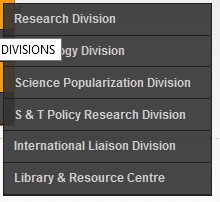
Departments
Research Division
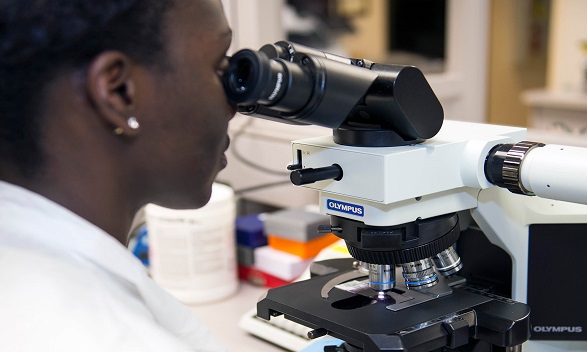
The activities of the Research Division are mainly focused on the scientific community in Sri Lanka through provision of funds under various grant schemes. Over the past several decades NSF has supported numerous Research, Development & Innovation activities/ programmes in all fields of Science & Technology with a view to enhance the outputs and outcomes of the research and innovations, which will ultimately benefit the Sri Lankan society. Accordingly the NSF has facilitated harnessing of the independent, individual, intellectual capacity of scientists for RD&I and encouraged institutions and scientists to carry out quality research and innovations directed towards the socio-economic development of Sri Lanka.
Technology Division
The Technology Division was established in the NSF with a view to promote technology development and innovation. The Division serves a large number of innovators across a wide range of population including individual inventors. Our stakeholders are the researchers & scientists from universities, research institutes as well as the Sri Lankan industry and entrepreneurs. Our programmes/projects and activities are designed to foster innovation in all areas of S & T including biotechnology and nanotechnology. The Division's ultimate objective is to contribute to wealth creation and thereby the economic growth of the country.

Science Popularization Divisions
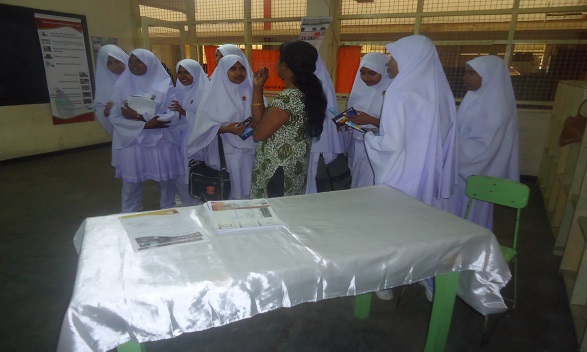
According to the Science and Technology Development Act No.11 of 1994 one of the functions of the NSF is to popularise science amongst the people.To carry out this function Science Popularisation Division was established.
S & T Policy Research Division
The Science and Technology Policy Research Division (STPRD) was established in the NSF in January 2005 with a view to establish a research arm in the areas of science and technology policy for providing evidence based research data towards development of S&T indicators for policy formulation.
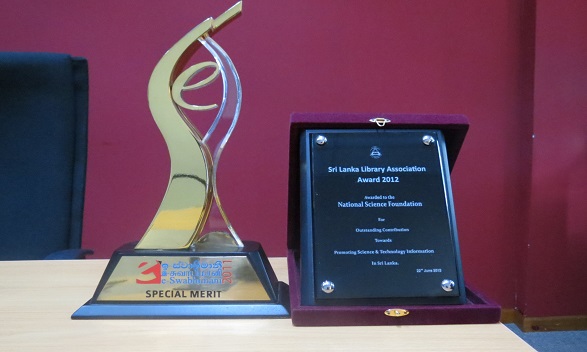
International Liaison Divisions

The International Liaison Division (ILD) was established at the National Science Foundation in January 2005 with a view to meet the requirements stated in the Science & Technology Development Act No.11 of 1994 to foster the interchange of scientific information among scientists in Sri Lanka and foreign countries. It promotes and assists Sri Lankan scientists and technologists to participate in meetings and short term research work abroad, and to arrange for expatriate scientists and technologies to work in Sri Lanka on short term assignments. ILD promotes and facilitates the return of Sri Lankan scientists and technologists of distinction working outside Sri Lanka and the visibility of Lankan Scientists internationally.
Library Resource Center
As the National Focal Point for the dissemination of Science & Technology (S&T) Information in the country, the National Science Library and Resource Center (NSLRC) of the NSF provides an efficient information dissemination service to the scientific community using information communication technologies through strengthening of linkages and networks, by carrying out necessary programmes to foster the interchange of scientific information among scientists in Sri Lanka and foreign countries, by serving as the National repository of Science & Technology Literature and by facilitating an efficient Science and Technology information services through training of library professionals and provision of technical assistance.
The efficiency of the information service is enhanced through a network (Sri Lanka Science & Technology Information Network) operated among more than hundred (130) S&T libraries in the country.
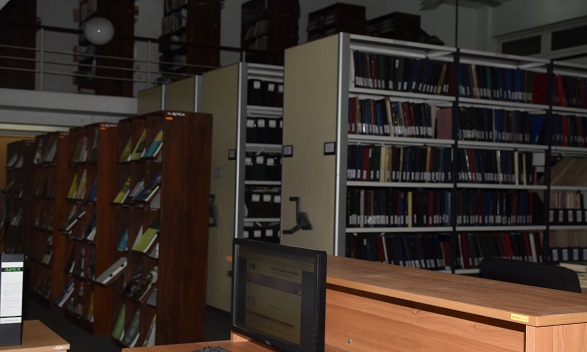
To help quickly find the information you need, the NSLRC offers a broad range of local, national & international databases with powerful & flexible search capabilities. These are accessible 24 hours a day & 7 days a week on the internet.
To provide an efficient information dissemination service to the scientific community using information communication technologies through the strengthening of linkages and networks
To serve as the national repository of S&T literature
To facilitate efficient S&T library services through the distribution of software
Supportive divisions
Those departments support for service providing departments to run their day to day works smoothly.
For the purpose of providing the services required to enable fulfillment of the core functions of NSF at optimum level the Administration Division is engaged in discharging the following key functions;
- General Administration
- Human Resource
- Management Asset
- Management Logistical
- Requirements of NSF
Further it strives to strengthen the linkages and communication between the relevant government and statutory bodies in the external environment. We make an effort to develop the ability and productivity of our staff and maintain a result oriented open culture which helps to uplift employee contribution effectively in order to reach the mission of NSF.
Read More
Finance division administers all the financial activities, so as to provide an efficient financial service ensuring prompt and timely action relating to all financial activities of the Foundation within the prevailing Financial Regulations. Main functions of the Finance Division are,
Read More
The Printing Unit meets the printing requirements of the foundation, and occasionally those of the Ministry of Science and Technology as well. The Unit function as an income generating activity of the NSF.
Read More
The Information Technology and Communications facilities of the Secretariat are maintain by the ICT Unit. Providing internet facilities to NSF staff, web/database hosting facilities, email facilities and maintaining Intranet, are key activities of the ICT Unit.
Read More
Internal Audit Unit is an independent unit of the NSF. Internal audit activities of the unit were designed to add value and improve an organisation's operations. It helps an organisation accomplish its objectives by bringing a systematic, disciplined approach to evaluate and improve the effectiveness of risk management, control and governance processes.
Read More
Grants
The NSF supports R & D activities of Sri Lankan scientists in all fields of Science & Technology, the outputs and outcomes of which will ultimately benefit the Sri Lankan Society. Accordingly, the Competitive Research Grants facilitate and encourage scientists to carry out research of high standard, to strengthen the research base and promote R & D activities directed towards the socio-economic development of the country. These grants are expected to facilitate and support basic and applied scientific research for socio economic development of the country while promoting capacity building of S & T personnel. It will also provide assistance to supplement the financial, physical and manpower resources available for scientific research in the scientists' own institutions.
Read MoreB. NATIONAL THEMATIC RESEARCH PROGRAMME (NTRP)
C. RESEARCH SCHOLARSHIPS
At present there is very low output of postgraduate research degrees by the Sri Lankan universities. It is important to attract and encourage graduates from recognized universities to conduct fulltime research leading to research degrees in order to encourage them to take up careers related to research.
Read More D. POSTDOCTORAL RESEARCH SCIENTISTThis grant scheme provides an opportunity for scientists / engineers with recent PhD or equivalent qualifications to carryout fulltime research within the country up to 2 years. This grant scheme provides an opportunity for scientists / engineers with recent PhD or equivalent qualifications to carryout fulltime research within the country up to 2 years. These grants are awarded in all fields of Science & Technology after comprehensive evaluation by the NSF. Applicants should have evidence of excellent research achievements and strong recommendations from two referees.
Read MoreE. RESEARCH EQUIPMENT GRANTS
Laboratories with modern infrastructure facilities are needed for research to be in par with the global S & T research. Laboratories with modern infrastructure facilities are needed for research to be in par with the global S & T research. This scheme intends to assist the acquisition of equipment for research that is generally too costly to be purchased by the Research Institutions and Universities. Applications for grants are entertained throughout the year and evaluated quarterly.
Read MoreF. RESEARCH SPARE PARTS
Purchasing of spare parts for research equipment has become a major problem for universities and R & D institutions due to financial constraints. Purchasing of spare parts for research equipment has become a major problem for universities and R & D institutions due to financial constraints. In order to overcome this problem NSF initiated the Research spare parts grants scheme to enable the researchers to purchase the necessary spare parts to repair/maintain the equipments.
Read MoreG. FUNDING THE PAGE CHARGES OF PUBLICATIONS OF SRI LANKAN SCIENTISTS
Research publications enable the sharing of the findings with others so that they can benefit from the new knowledge which has been discovered. Research publications enable the sharing of the findings with others so that they can benefit from the new knowledge which has been discovered. It also gives project findings the opportunity to be critically evaluated, reproduced and thus gains validity. Therefore the way to reach the widest audience is to publish the findings in a reputed journal. However, some reputed journals charge publication fees. As such, the NSF initiated this new grant scheme to support the publication fees for Sri Lankan Scientists whose papers have been accepted by reputed journals indexed in the Science Citation Index, Science Citation Index expanded and Social Science Citation Index as an encouragement for them, to ensure greater visibility for their R & D activities.
Read More NSLRC
NSLRC